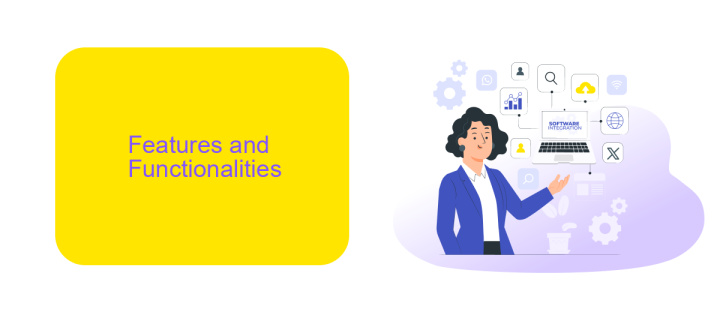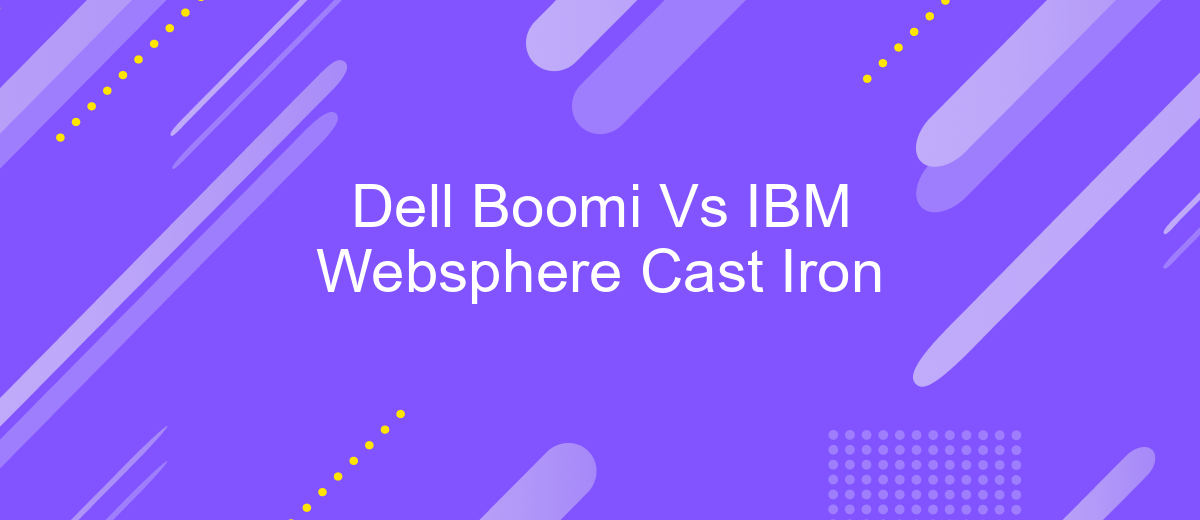Dell Boomi Vs IBM Websphere Cast Iron
In today's rapidly evolving digital landscape, businesses require robust integration platforms to streamline operations and enhance connectivity. Dell Boomi and IBM WebSphere Cast Iron are two leading solutions in this domain. This article delves into a comparative analysis of these platforms, examining their features, benefits, and potential drawbacks to help organizations make informed decisions on their integration strategy.
Introduction
In the modern business landscape, efficient data integration is crucial for maintaining seamless operations and achieving strategic goals. Dell Boomi and IBM Websphere Cast Iron are two prominent integration platforms that offer robust solutions for connecting diverse applications and data sources. These platforms enable organizations to streamline processes, enhance productivity, and ensure data consistency across various systems.
- Dell Boomi: Known for its cloud-native architecture, ease of use, and extensive pre-built connectors.
- IBM Websphere Cast Iron: Offers powerful on-premise and cloud integration capabilities with strong support for complex enterprise environments.
Both platforms have their unique strengths and cater to different organizational needs. Additionally, services like ApiX-Drive can further simplify the integration process by providing user-friendly tools for setting up and managing integrations without requiring extensive technical expertise. Choosing the right platform depends on specific business requirements, existing infrastructure, and long-term integration goals.
Features and Functionalities

Dell Boomi offers a comprehensive set of features designed for seamless integration and data management. It provides a cloud-native platform that supports a wide range of integration scenarios, including application-to-application, business-to-business, and data integration. Boomi's intuitive drag-and-drop interface simplifies the integration process, making it accessible even to users with limited technical expertise. Additionally, its extensive library of pre-built connectors and templates accelerates deployment, while real-time monitoring and analytics ensure optimal performance and reliability.
IBM Websphere Cast Iron, on the other hand, focuses on rapid integration of cloud and on-premises applications. It offers a robust suite of tools that facilitate the automation of business processes and data flows. Cast Iron's pre-configured integration templates and connectors reduce development time and complexity. Moreover, its advanced security features and compliance with industry standards ensure data integrity and protection. For users seeking an efficient way to manage integrations, services like ApiX-Drive can complement both Dell Boomi and IBM Websphere Cast Iron by providing additional automation and integration capabilities, further streamlining workflows and enhancing productivity.
Use Cases and Industries

Both Dell Boomi and IBM Websphere Cast Iron cater to various industries and use cases, providing robust solutions for integration and automation needs. Dell Boomi is particularly popular in sectors such as healthcare, finance, and retail due to its cloud-native architecture and ease of use. IBM Websphere Cast Iron, on the other hand, is favored in industries like manufacturing, telecommunications, and government, where complex on-premises integrations are often required.
- Healthcare: Dell Boomi enables seamless data exchange between electronic health record (EHR) systems and other healthcare applications.
- Finance: Dell Boomi supports the integration of various financial systems, ensuring real-time data flow and compliance.
- Retail: Retailers leverage Dell Boomi to connect e-commerce platforms with inventory management systems.
- Manufacturing: IBM Websphere Cast Iron facilitates integration between legacy systems and modern applications.
- Telecommunications: IBM’s solution helps manage the complex data flows between various telecommunication systems.
- Government: IBM Websphere Cast Iron supports secure and reliable data integration for public sector applications.
For businesses looking to streamline their integration processes, services like ApiX-Drive offer valuable support. ApiX-Drive simplifies the setup of integrations between various applications, making it an excellent complement to both Dell Boomi and IBM Websphere Cast Iron in diverse industry scenarios.
Pricing and Licensing

When comparing the pricing and licensing models of Dell Boomi and IBM Websphere Cast Iron, it's important to consider the specific needs and budget constraints of your organization. Dell Boomi offers a subscription-based pricing model, which is typically more flexible and scalable for businesses of different sizes. Their pricing tiers are based on the number of integrations and the volume of data processed.
On the other hand, IBM Websphere Cast Iron usually follows a more traditional licensing approach, which can involve higher upfront costs and more rigid terms. This model might be more suitable for larger enterprises with stable integration requirements and substantial budgets.
- Dell Boomi: Subscription-based, scalable pricing, cost-effective for SMBs.
- IBM Websphere Cast Iron: Traditional licensing, higher initial costs, ideal for large enterprises.
Additionally, services like ApiX-Drive can complement both platforms by providing easy-to-use tools for setting up integrations, potentially reducing the complexity and cost associated with manual integration efforts. This can be particularly beneficial for organizations looking to streamline their integration processes without incurring significant additional expenses.
Conclusion
In conclusion, both Dell Boomi and IBM Websphere Cast Iron offer robust solutions for integration needs, each with its own strengths and weaknesses. Dell Boomi stands out for its user-friendly interface and cloud-native architecture, making it an excellent choice for businesses looking for rapid deployment and scalability. On the other hand, IBM Websphere Cast Iron excels in handling complex, on-premise integrations and offers extensive support for legacy systems, which can be crucial for enterprises with intricate IT landscapes.
When considering which platform to choose, it's essential to evaluate your specific integration requirements, budget, and existing IT infrastructure. Additionally, leveraging tools like ApiX-Drive can further streamline the integration process by offering a seamless way to connect various applications and automate workflows. Ultimately, the right choice will depend on your organization's unique needs and long-term strategic goals.
FAQ
What are the primary differences between Dell Boomi and IBM Websphere Cast Iron?
Which platform is more cost-effective for small to medium-sized businesses?
How easy is it to implement and maintain integrations on Dell Boomi compared to IBM Websphere Cast Iron?
Can both platforms handle real-time data integration?
Are there third-party services available for automating and setting up integrations for these platforms?
Routine tasks take a lot of time from employees? Do they burn out, do not have enough working day for the main duties and important things? Do you understand that the only way out of this situation in modern realities is automation? Try Apix-Drive for free and make sure that the online connector in 5 minutes of setting up integration will remove a significant part of the routine from your life and free up time for you and your employees.

